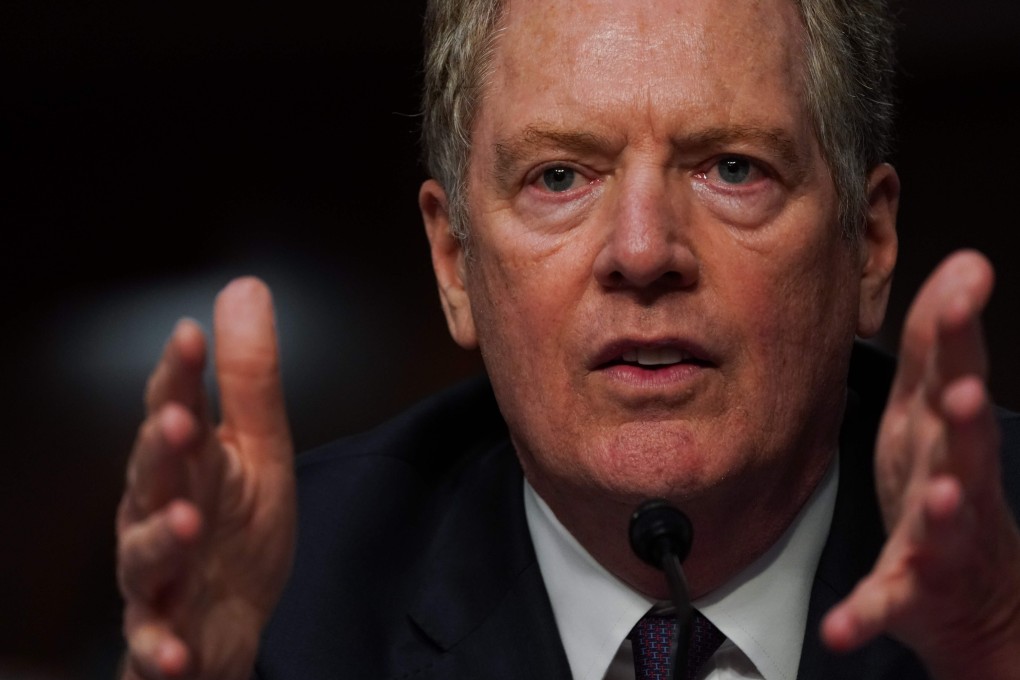Lawmakers pressure US trade representative to strike a formal trade deal with Taiwan
- In a letter signed by 50 senators, US Trade Representative Robert Lighthizer was urged to start negotiating with Taipei to reduce US ‘reliance’ on China
- A comprehensive trade deal, the senators wrote, would ‘serve as a signal to other nations that Taiwan is a viable partner that is open for business’

In a bipartisan letter signed by 50 senators, US Trade Representative Robert Lighthizer was urged to start negotiating with Taipei in order to reduce US “reliance” on China, diversify the country’s supply chains and protect American national security.
A comprehensive trade deal, the senators wrote, would “serve as a signal to other nations that Taiwan is a viable partner that is open for business”.

00:56
Taiwan President Tsai Ing-wen visits military base following ‘provocations’ from mainland China
Many members of Congress also say the US should move closer to the democratic government in Taipei at the same time.
Beijing regards Taiwan as a renegade province and has not ruled out the use of force to take it under its control. The US sells weaponry to Taiwan, but its policy on whether it would defend the island from a Chinese attack has been described as “strategic ambiguity”.